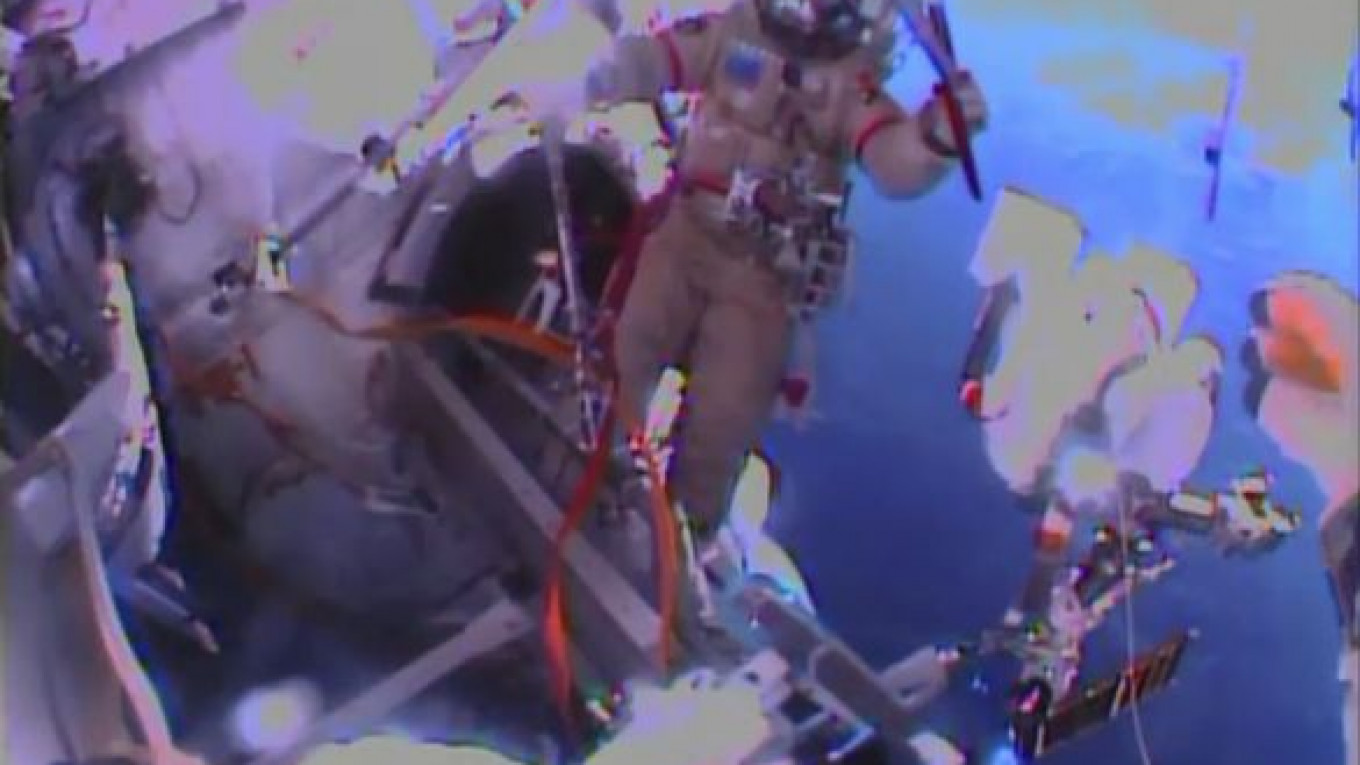If any country can surpass Russia's achievement of sending the Olympic torch on a spacewalk, Sochi 2014 Winter Games organizing committee president Dmitry Chernyshenko would like to see them try.
In what has already become one of the most enduring images associated with February's 2014 Winter Games, two Russian cosmonauts took an unlit torch into open space on Saturday and photographed themselves holding it up with a glowing Earth hanging majestically behind them.
Screen grabs of cosmonaut Oleg Kotov holding up the red and silver torch were splashed across the front pages of leading media outlets in the hours that followed, with millions following the event live over the Internet.
"We have shown the entire world what we are capable of, very vividly," Chernyshenko told R-Sport. "If anyone can do better, let them try," he joked.
"The reaction across the globe has been extremely positive. Everyone has been talking about it, it has had immense attention and there has been real respect, without irony, that Russia has put a torch in space," he said.
"The idea was to unite the country around this event, and we succeeded. We can draw a parallel with sport's highest achievements."
Chernyshenko noted that the entire endeavor cost Russia very little because the spacewalk was required anyway to conduct routine maintenance on the international space station. It was the first time a torch had ever been exposed to the vacuum of space.
The extra-vehicular activity, known as Russian EVA 26, lasted six hours and featured three main tasks: A symbolic handover of the torch from one cosmonaut to the other; maintenance on a work station that was installed during the station's last EVA in August; and the deactivation of a piece of equipment installed in 2011 and designed to help with earthquake predictions.
The torch will be transported back to Earth to land Monday in the Kazakh steppe with the Soyuz TMA 09M. It will be kept and used to light the Olympic cauldron at the Fisht Stadium in Sochi at the opening ceremony for Russia's first Winter Games on Feb 7.
A Message from The Moscow Times:
Dear readers,
We are facing unprecedented challenges. Russia's Prosecutor General's Office has designated The Moscow Times as an "undesirable" organization, criminalizing our work and putting our staff at risk of prosecution. This follows our earlier unjust labeling as a "foreign agent."
These actions are direct attempts to silence independent journalism in Russia. The authorities claim our work "discredits the decisions of the Russian leadership." We see things differently: we strive to provide accurate, unbiased reporting on Russia.
We, the journalists of The Moscow Times, refuse to be silenced. But to continue our work, we need your help.
Your support, no matter how small, makes a world of difference. If you can, please support us monthly starting from just $2. It's quick to set up, and every contribution makes a significant impact.
By supporting The Moscow Times, you're defending open, independent journalism in the face of repression. Thank you for standing with us.
Remind me later.






